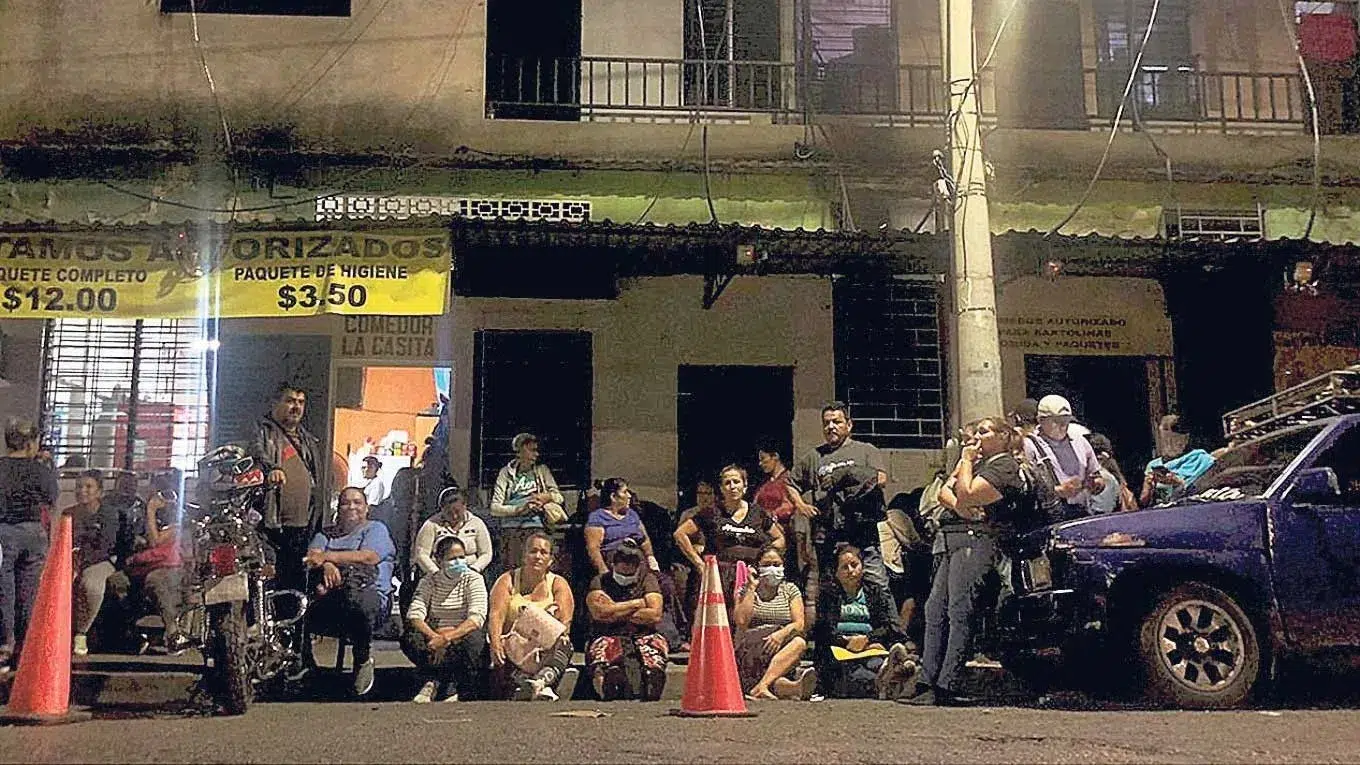Laurence Cuvillier has seen El Salvador change in just six months. She is a journalist and correspondent for France24 for Central America and had not visited the country since March of this year, before the emergency regime. In September, she returned to film a documentary on the security measure, but what she found surprised her.
“I arrived after six months in which I had the impression that everything had changed; I did not recognize the country, nor did I recognize the people. I saw a fear of talking, and although I knew I would run into that situation, I did not imagine it would be in these dimensions. I had only seen this in Nicaragua,” he said.
Cuvillier’s impression is that he came to work on a documentary about the emergency regime but found many obstacles to achieving it.
Although he had already arranged interviews with relatives of the deceased who had been captured during the regime, they declined to do so out of fear. He assured me that the 13 days he spent in the field were insufficient to gather the information he was interested in.
“Before the regime, I had never had problems with interviews, especially if they were anonymous. But nowadays, being on television and an international media only generates anxiety and fear. I think that’s why I found myself in a difficult situation, several of the testimonies were anonymous, and in other cases, people refused to give them. Even with conditions of anonymity, these people knew that they could be searched, and I understood that it was true, not something irrational. This is something I did not expect,” he said.
During his visit, he could only speak with some relatives of those captured by the regime and understand the economic situation they were living in. He said that it is clear to him that these people are the most affected and vulnerable since “in addition to not having an income, they have to buy a package that is subject to corruption since they pay $90 for supplies that may not reach their relatives in prison”.
Las trabas de un documental sobre el régimen
Laurence Cuvillier ha visto el cambio de El Salvador en solo seis meses. Ella es periodista y corresponsal de France24 para Centroamérica y no visitaba el país desde marzo de este año, antes del régimen de excepción. En septiembre volvió para grabar un documental sobre la medida de seguridad, pero lo que encontró la sorprendió.
“Llego después de un lapso de seis meses en los que efectivamente tengo esta impresión de que todo cambió, no reconocía al país, ni reconocía a la gente. Vi un temor de hablar y aunque sabía que me iba a topar con esa situación, no imaginé que fuera en estas dimensiones. Esto solo lo había visto en Nicaragua”, aseguró.
La impresión de Cuvillier se debe a que vino a trabajar un documental sobre el régimen de excepción, pero encontró muchas trabas para lograrlo.
Aunque ya había acordado entrevistas con familiares de fallecidos que habían sido capturados durante el régimen, estos al final declinaron de hacerlo por temor. Aseguró que los 13 días que destinó para hacer su trabajo de campo no fueron suficientes para recopilar la información que le interesaba.
“Antes del régimen nunca había tenido problemas en entrevistas y más si eran de manera anónima. Pero en la actualidad, siendo televisión y de un medio internacional, solo se genera ansiedad y temor de la gente. Creo que por eso me encontré con una situación difícil, varios de los testimonios fueron anónimos y en otros casos la gente se negó a darlos. Incluso con condiciones de anonimato estas personas sabían que los podían ir a buscar y entendí que era cierto, que no era algo irracional. Eso es algo que efectivamente no me esperaba”, aseguró.
Durante su visita solo pudo hablar con algunos familiares de capturados del régimen y comprender la situación económica que están viviendo. Dijo que tiene claro que estas personas son las más golpeadas y vulneradas, pues “además de no tener el ingreso tienen que comprar un paquete que está sujeto a corrupción, pues pagan $90 de insumos que a lo mejor no les llegan a sus familiares en la cárceles”.

